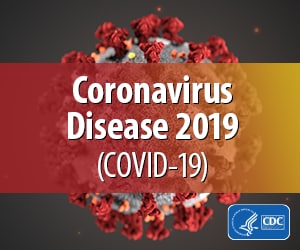CDC Tribal Consultation, Partnership, and Funding
Supporting Tribal Public Health Capacity in Coronavirus Preparedness & Response | CDC
Noncompetitive Grant (CDC-RFA-OT20-2004)
CDC’s National Center for State, Tribal, Local, and Territorial Public Health Infrastructure and Workforce has awarded a noncompetitive grant to 346 tribal recipients, including 290 tribal nations, 25 tribal consortia, and 31 tribal organizations—CDC-RFA-OT20-2004: Supporting Tribal Public Health Capacity in Coronavirus Preparedness and Response. These recipients can use funds to conduct surveillance, epidemiology, laboratory capacity, infection control, mitigation, communication, and other COVID-19 preparedness and response activities.
This $152.8 million ($142 million in FY20 and $10.8 million in FY21) grant is funded through the Coronavirus Preparedness and Response Supplemental Appropriations Act 2020 and the Coronavirus Aid, Relief, and Economic Security (CARES) Act. It is designed to provide emergency COVID-19 response funds to federally recognized tribes, including entities that contract or compact with the Indian Health Service under Title I and Title V of the Indian Self-Determination and Education Assistance Act, or consortia of these tribes, or their bona fide agents. During a national emergency, these organizations are uniquely positioned to provide emergency preparedness and response support for tribal health departments and other components of the tribal public health system.
Purpose
The purpose of the 1-year grant funding is for tribal nations, tribal consortia, and tribal organizations to conduct public health activities in response to COVID-19. Activities may include but are not limited to the following:
- Surveillance and epidemiology — case identification, management and risk assessment of travelers and others with potential COVID-19 exposure, data management, reporting, surge staffing and procurement of supplies and equipment
- Laboratory capacity — procurement of equipment, supplies, shipping, and staffing associated with testing and other laboratory activities
- Countermeasures and mitigation — infection control, quarantine and isolation, management and distribution of medical material, coordination with healthcare systems, surge staffing, shipping and procurement of supplies and equipment
- Communication — risk communication guidance and information sharing to tribal members, tribal organizations, responders, clinicians and others, information management, and surge staffing, procurement of supplies, and shipping in support of communication
- Emergency operations and coordination — establishing emergency operations centers, incident management systems, continuity of operations plans, volunteer management, surge staffing and procurement of supplies and equipment
- Health information technology — supporting data systems necessary to support and focus on COVID-19 surveillance and reporting, demographic measures for populations, and patient tracers. It is not intended to support health information technology systems related to the direct healthcare delivery system.
- Recovery activities — restoring tribal communities to pre-event functioning, conducting after-action reviews, development of improvement plans
- Other Activities — Other preparedness and response activities related to COVID-19
Additional Activities
Additionally, funding may be used—
- For the alteration or renovation of non-federally owned facilities to improve preparedness and response capability (CDC prior approval is required)
- To reimburse costs for these purposes incurred on or after January 20, 2020 (CDC prior approval is required)
View the list of Tribal COVID-19 Grant Recipients [PDF-139KB] and visit CDC’s COVID-19 Funding for Tribes web page for more information.
